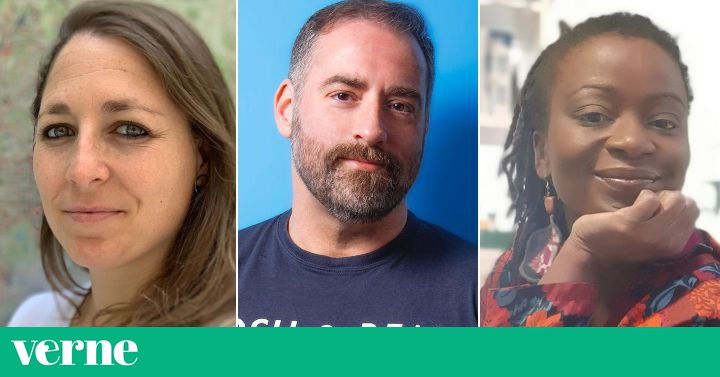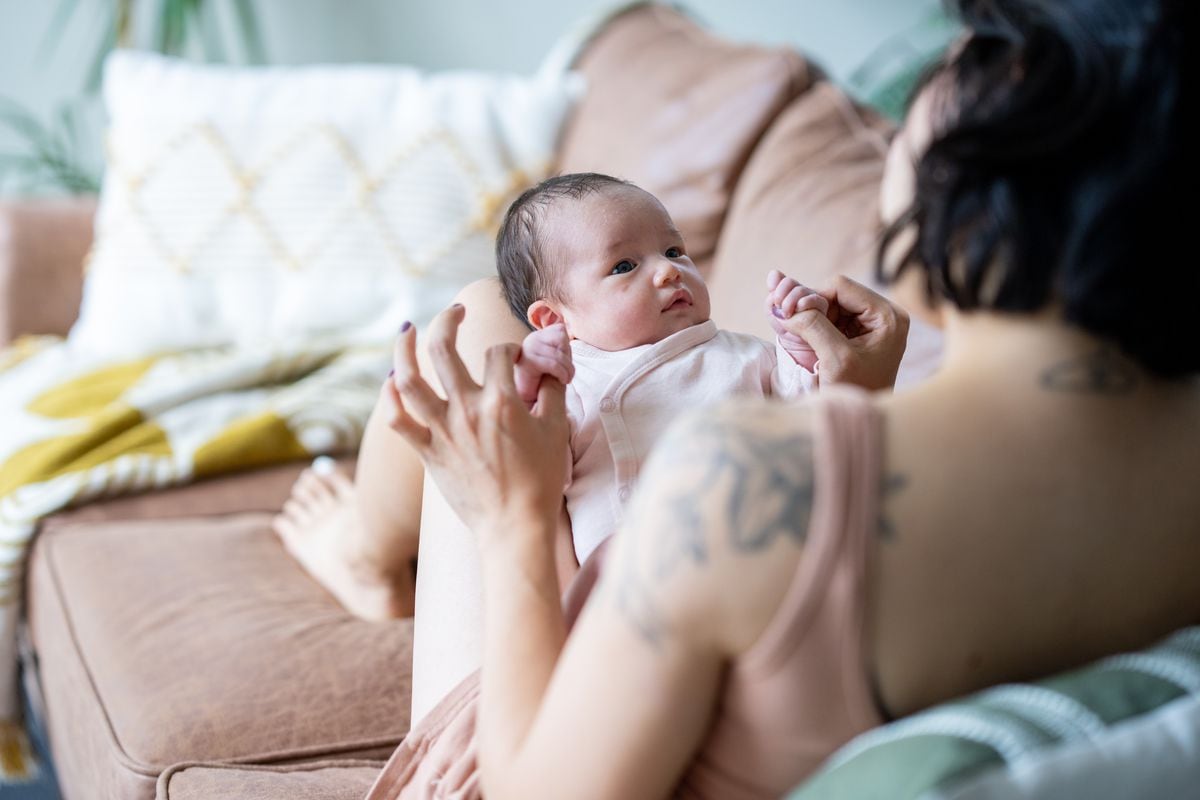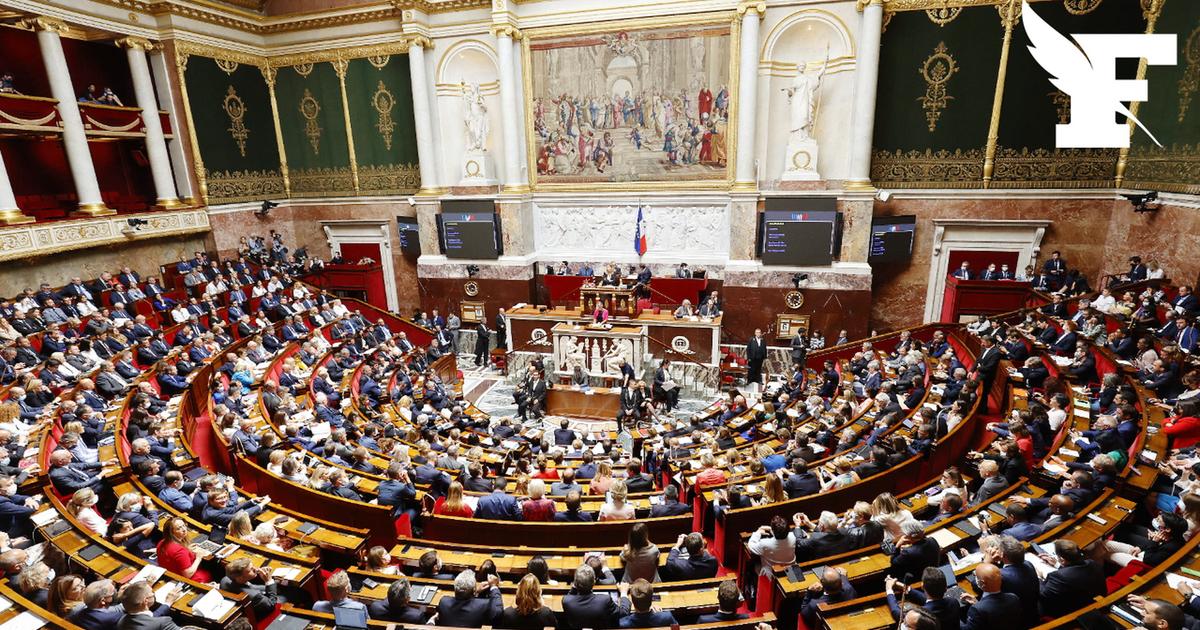Like other people suffering from anxiety or depression, Adela Granda (24 years old) decided to seek psychological help. For two years, she visited several specialists who, as Adela herself says, did not seem to help her. "One even diagnosed me within five minutes as borderline personality disorder (BPD)," a complex mental disorder that has to do with unstable behaviors and frequent mood swings.
None of them could see that the emotions Adela was experiencing were the result of a complex personal struggle to define her gender identity and sexual orientation. Finally, and on the recommendation of a friend, the young woman from Madrid ended up visiting a psychologist specialized in treating LGTBI people. "She accompanied me in the process of that identity search and reassured me enough when she told me that she did not have BPD," says Adela.
Massiel Valdez (30 years old) also looks for her place in the world and she does it from the hand of another psychologist who works under a race perspective and who also agreed on recommendation. "It is very hard to grow up in an environment of discrimination, always being different makes you feel very lonely," says Massiel, recalling her childhood in Spain, where she arrived at the age of seven from the Dominican Republic. "In my school, I was the only girl who was racialized and suffered constant bullying , even in front of adults who did nothing about it."
It wasn't until adolescence that Massiel identified that discrimination as racism. "In a society where immigration of non-white people is not normalized, that feeling of being different persists, continually reminding you that you are not from here, even though you have spent most of your life in this country." She believes that society is not making the necessary efforts to integrate people of other races and ethnicities, so the young woman has been debating for a while between staying in Spain, with her mother, or returning to the Dominican Republic.
Racism and LGTBiphobia are still present in society, as reported by associations such as SOS Racism or the Madrid Observatory against LGTBIphobia in reports prepared annually. A discrimination that influences in many cases the mental health of racialized and LGTBI people. Faced with this situation, some professionals in psychology are expanding their training to incorporate a racial perspective and sexual and gender diversity.
Although any professional can be adequately trained, the psychologists consulted for this report belong to the group for which they provide psychological help. Their personal experiences made them understand the need to offer specialized therapy. "Belonging to the group allows you to have more empathy with these realities," says Cristina Pineda (38 years old), an LGTBI psychologist at the CEPSIM clinic. However, this membership does not guarantee correct treatment of patients. "You have to train, acquire tools, learn basic concepts such as that sexual orientation is not chosen or that gender identity is constructed," adds Cristina.
What is involved in these therapies?
The anti-racist psychologist Marian Nvumba (40 years old and resident in Bilbao) tells us that there are many reasons that can lead to racialized people feeling self-rejection or, in other words, internalized racism. "There is the lack of references, the exaltation of white above everything else, the continued discrimination based on your race or origin, the stereotyping of migrants or refugees ...", says Marian.
It is also common to find this fear or hatred of transsexuality or homosexuality of your own in LGTBI consultations. Jordi Gómez (47 years old) experienced it in the first person when he discovered, after many years married to a woman, and with two children as a result of that marriage, that he was gay. "I went into a depression because of it, and was unable to accept my homosexuality or see myself relating to other men," says Jordi himself from Sabadell.
As the psychologist Gabriel J. Martín, specialized in affirmative psychology (as LGTBI therapy is officially known) for homosexual men who practices in Barcelona, explains to Verne , "internalized homophobia is reflected in several ways: the non being at ease with oneself, the relationship with others, the lack of confidence ... the self-esteem of these people is very much touched when they come to the consultation. "
After several sessions with his LGTBI psychologist, Jordi managed to accept his homosexuality; It was then up to him to communicate it to his nearest circle. "I worked a lot on that aspect with my psychologist. I remember that my mother took it fatally. After several years she still does not accept it, but the ones who really surprised me were my nine and seven year old children. They took it very naturally, I They gave a whole lesson in tolerance, "says excited Jordi, who today lives with his partner and leads a life" totally normalized, thanks to that therapy. "
Relationship inquiries are also very common in specialized LGTBI therapies. Estela García (28 years old) has been attending one since September, when she moved to Madrid from Barcelona. Come to learn a few things about how to handle your relationship. "With my psychologist we work on the identification of stereotypical behaviors about relationships, generally based on the heterosexual system. My intention is to correct them and thus be able to live a relationship with my girlfriend far from those stereotypes," she says. "But we also deal with other more general issues such as my adaptation to the city, or how not finding a job is affecting me."
As the psychologist Ana Adán, from the You and Me LGTB Psychologists clinic explains, the psycho-affective relationships of homosexual couples are different from heterosexual couples. "Homo couples develop in the absence of models, they live in homophobic contexts, they are subjected to an external vision full of stereotypes and within them there is what we call homophobic disparity, which subjects homo couples to more difficulties, stress and conflicts than the hetero ", clarifies Adam.
Even when it comes to dealing with gay relationships, Adam finds different dynamics between gays and lesbians. "We women still receive an education that places great importance on being in a relationship, which makes it possible for participants in a lesbian relationship to experience it with more dependency, intensity, overprotection, excessive knowledge of the other and overcommunication," she affirms. Adam.
Another issue that often comes up in therapy is that of intra-gender violence, which Adam describes as "the great invisibility". This is a sensitive issue within LGTBI activism, since violence between people of the same gender has often been used "to delegitimize and blur the fight" against male violence. But both specialized psychologists, such as Ana Adán or Paula Alcaide herself, or people who have suffered it, agree on the need not to hide it.
How does a psychologist specialize in LGTBI or anti-racist therapy?
"The history of a person is determined by how they are read racially and you have to take this into account to tackle any topic. If not, instead of helping them therapeutically, a lot of pain can be inflicted," explains the Dominican psychologist Jeannette Tineo (46 years old). ) to Verne in a telephone conversation from Madrid. However, there are not many professional options to specialize in the care of racialized people, nor are there many for LGTBI issues.
LGTBI psychology or affirmative psychology does not have official and university training in Spain, although in recent years it is increasingly common to find specialized courses in affirmative psychology on sexual and gender diversity offered by associations or institutions such as the College of Psychologists of Madrid. "Training is advancing at the rate that society is advancing, here there is still much to do in terms of recognizing and normalizing sexual and gender diversity," says Cristina Pineda.
This training is usually based on guidelines established by the IPsyNet ( International Psychology Network for Lesbian, Gay, Bisexual, Transgender, and Intersex Issues ), a network created by the American Psychological Association (APA) of which Gabriel J. Martín is a representative in Spain. The American institution was the first to promote affirmative psychology in the seventies of the last century, recommending that health professionals stop treating homosexuality as a disease, although the World Health Organization would not withdraw it from its list of mental illnesses until almost two decades later, in 1990. Transsexuality remained on that list until 2018.
The need to address the impact that racism has on the mental health of racialized people was also raised in the last century by theorists such as the French Antillean psychologist and philosopher Frantz Fanon, also known for his dissemination in favor of the national liberation of the colonial towns. His speech profoundly influenced subsequent generations of anti-racist thinkers and activists.
However, as the psychologist Tineo argues, "the fact that there is not even a social debate on racism in Spain makes the way to this type of training seem practically unimaginable." For the Dominican psychologist Yania Concepción (31 years old), academic psychology is based on studies and knowledge only of white people and ignores other realities such as those of racialized people. Introducing this specialization in university training "would entail uncovering how racist the academy itself is, as is society in general," adds Concepción.
"At the moment, specializing in anti-racist psychology involves being an activist and self-training: reading Fanon, Grada Kilomba and so many other authors who offer a different perspective on the white Europeanist," recommends Nvumba. "And for those professionals who are not racialized but want to practice from this perspective, I would recommend that they initially seek the supervision of a psychologist who is," he concludes.
* You can also follow us on Instagram and Flipboard. Don't miss the best of Verne!





/cloudfront-eu-central-1.images.arcpublishing.com/prisa/L45XU6JBINGJHEXMKNTF3UPI5A.jpg)



